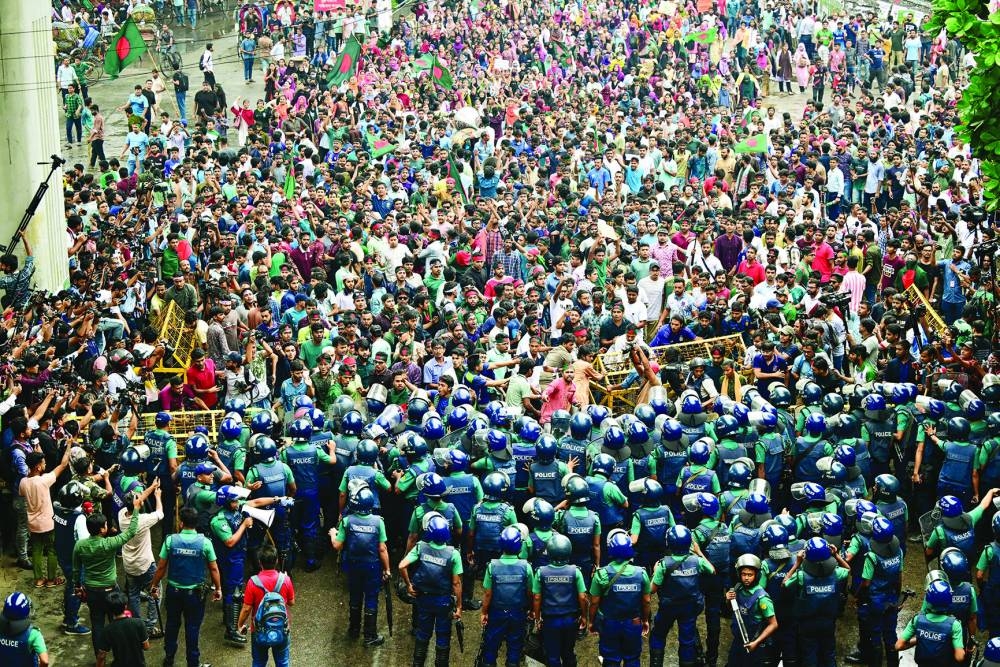
Students scuffle with police during a protest to demand merit-based system for civil service jobs in Dhaka yesterday.
Bangladesh police yesterday fired tear gas and rubber bullets to disperse university student protesters demanding the scrapping of quotas they say are rigged to support pro-government job candidates.
The quota system reserves more than half of well-paid civil service posts, totalling hundreds of thousands of government jobs, for specific groups including children of heroes from the country's 1971 liberation war.
Students launched protests earlier this month, demanding a merit-based system, and have continued demonstrations despite Bangladesh's top court suspending the quota scheme this week.
Officers forcibly dispersed around 150 students in the eastern city of Comilla after they attempted to blockade the main highway to the capital Dhaka, police inspector Syed Fazle Rabbi said
"Police fired rubber bullets and tear gas to disperse them," he said.
Comilla Medical College Hospital director Sheikh Fazle Rabbi said 11 protesters had been injured, with two since discharged. None of the injured had been hit by rubber bullets.
Amnesty International said in a statement that it had seen reports of at least 20 injured in the incident, and urged authorities to "halt the use of unnecessary and excessive force".
Police in Dhaka tried in vain to stop thousands of young protesters from blocking roads around the megacity for the second time in as many days.
Footage aired by local broadcaster Jamuna TV showed several protesters mounting a police vehicle and hundreds of others dismantling a police barricade.
In the port city of Chittagong, police charged hundreds of protesters with batons in an attempt to prevent them from marching on a major road, witnesses said.
"Police tried to stop us from holding our protests," said Dipa, a student from the city. "We will not leave the road until our demand is met."
Students are demanding that only those quotas supporting ethnic minorities and disabled people -- six percent of jobs -- should remain.
Bangladesh's top court on Wednesday temporarily suspended the quotas, but protesters have vowed to continue until the parts of the scheme they oppose are scrapped completely.
Critics say the system benefits children of pro-government groups who back Prime Minister Sheikh Hasina.
Hasina, 76, won her fourth consecutive general election in January, in a vote without genuine opposition parties that saw a major crackdown against her political opponents, who boycotted the poll.
Critics accuse Bangladeshi courts of rubber-stamping decisions made by her government.
Hasina has condemned the protests, saying the matter had been settled by the court.
"Students are wasting their time," she said on Sunday.
